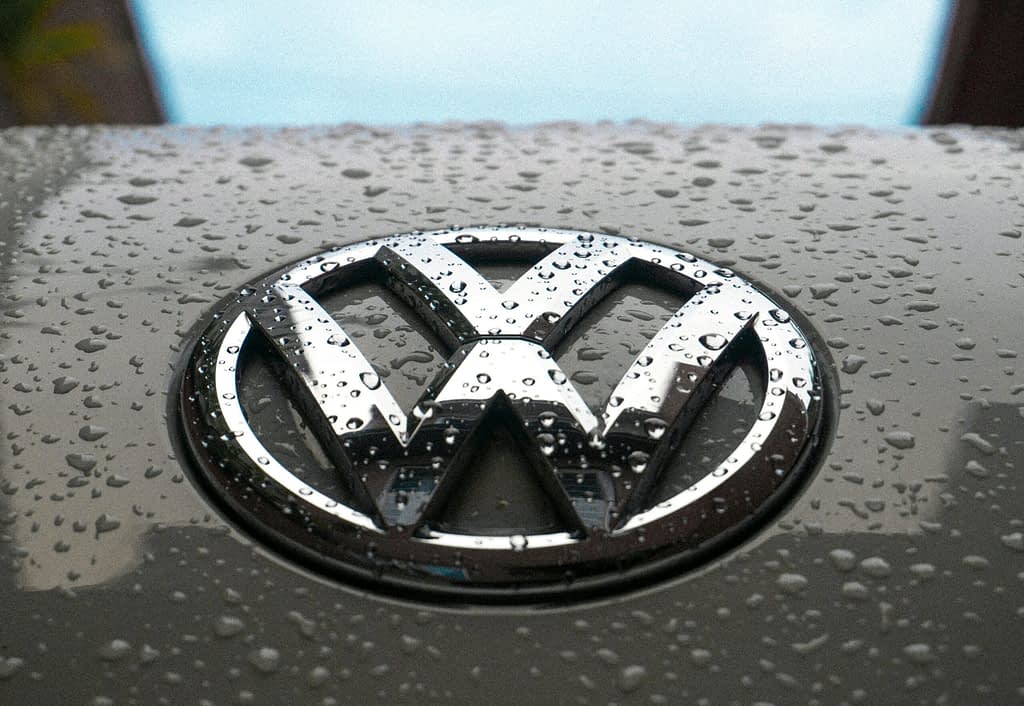Volkswagen reported a steep 40% profit drop in Q1 2025, hit hard by rising electric vehicle (EV) production costs and Trump’s U.S. tariffs. These pressures are forcing the German giant to rethink its strategy and darken its outlook, while global trade tensions threaten the broader auto industry.
A Rough Start to the Year
In Q1 2025, Volkswagen posted revenues of €77.56 billion, slightly below analyst estimates (€78.31 billion), and an operating profit of €2.87 billion against expectations of €3.48 billion. Its operating margin fell to 3.7% (forecast: 4.69%), reflecting soaring production costs and EV market challenges. The company projects full-year revenue growth of up to 5% and an operating margin of 5.5–6.5%, but investors remain wary due to uncertainties in key markets.
U.S. Tariffs Disrupt Operations
Since April 2, 2025, Trump’s 25% tariffs on vehicle imports have significantly raised Volkswagen’s costs, as the company exports a substantial portion of its production to the U.S. Additionally, 145% tariffs on Chinese parts have slashed freight shipments from China by 60%, threatening inventory shortages and empty warehouses. Volkswagen faces a tough choice: pass costs to customers, risking demand, or absorb losses, further eroding profitability.
- Price Hikes: Tariffs could increase U.S. car prices by 10–15%.
- Logistics Woes: Declining Asian imports disrupt production.
- Market Decline: Volkswagen’s shares fell 3.5% amid tariff and demand fears.
EV Challenges Add Pressure
Surging costs for developing and producing EVs, particularly the ID. series, are compounding Volkswagen’s woes. Heavy investments in batteries and software haven’t paid off, as EV demand in Europe and the U.S. grows slower than expected. High prices and inadequate charging infrastructure deter buyers, while Chinese competitors like BYD capture market share with cheaper alternatives, especially in Asia.
Market and Competitor Reactions
Volkswagen’s stock slid 3.5% after the earnings release, signaling investor concerns over tariffs and weak EV sales. Rivals like Mercedes-Benz also scrapped full-year targets due to trade uncertainties, while Tesla reported a 39% profit drop from sluggish sales and tariffs. Investing.com notes that firms like General Motors delayed earnings to assess tariff impacts, underscoring widespread industry turmoil.
Volkswagen’s Strategic Response
To counter these challenges, Volkswagen is exploring production shifts to the U.S. to mitigate tariff impacts, though this will raise initial costs. The company is also seeking partnerships for battery and software development to reduce reliance on Asian suppliers. CEO Oliver Blume stressed that “adapting to global conditions is critical,” but analysts remain cautious about a swift recovery.
Outlook and Risks Ahead
Should the trade war between the U.S., China, and Europe escalate, Volkswagen anticipates further margin and sales declines, particularly in the U.S. JPMorgan warns of a 60% chance of global recession, which could dampen vehicle demand. The company must also accelerate its EV transition to meet EU emissions standards, requiring hefty investments amid uncertainty.
- Trade Uncertainty: Escalating tariffs could worsen the outlook.
- EV Demand: Slow EV sales growth hinders recovery.
- Regulatory Pressure: Stricter EU emissions rules drive up costs.




